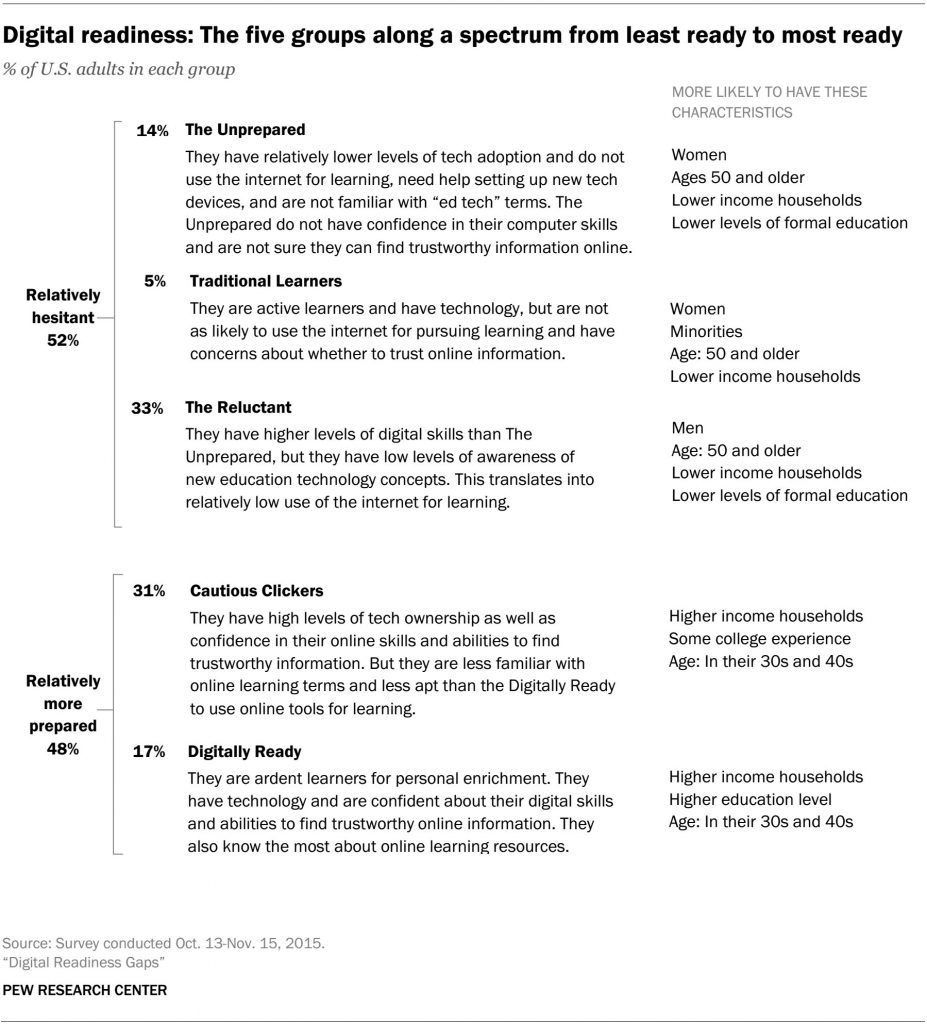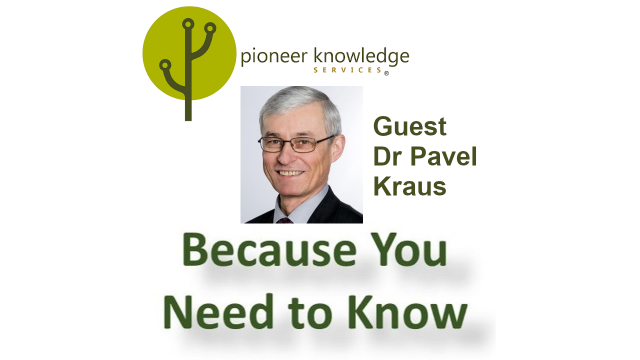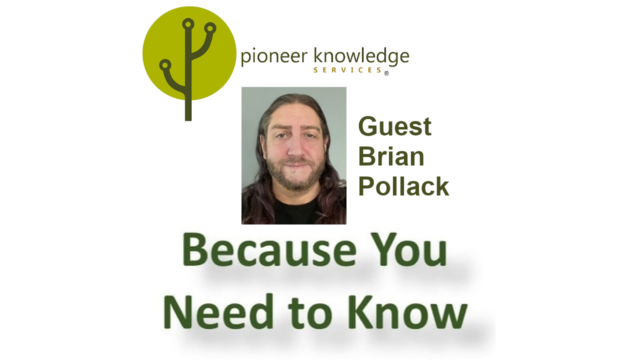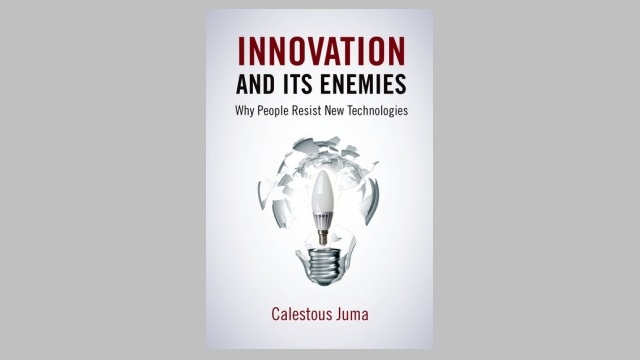
Pew Research Center Report: Digital Readiness Gaps
Concerns about “digital divides” have in the past focused mainly on people’s access to digital technologies. There is now an increasing focus on the extent to which people succeed or struggle when they attempt to use technology for problem-solving, decision-making, or finding pathways through their environments.
A new Pew Research Center report1 explores the attitudes and behaviours underpinning people’s preparedness and comfort in using digital tools for learning.
Specifically, American adults were assessed according to five main factors: their confidence in using computers, their facility with getting new technology to work, their use of digital tools for learning, their ability to determine the trustworthiness of online information, and their familiarity with contemporary “education tech” terms.
The analysis showed that there are distinct groups of people that fall along a spectrum of preparedness.
There are several important qualifying notes to consider in regard to the analysis:
- The research focuses on a particular activity – online learning. The findings are not necessarily transferable.
- There is some fluidity in the boundaries of the groups.
- The findings represent a snapshot of where adults are today in a fairly nascent stage of e-learning in society.
Reference:
- Horrigan, J.B. (2016, September). Digital Readiness Gaps. Pew Research Center. http://www.pewinternet.org/2016/09/20/2016/Digital–Readiness–Gaps/. ↩
Also published on Medium.







